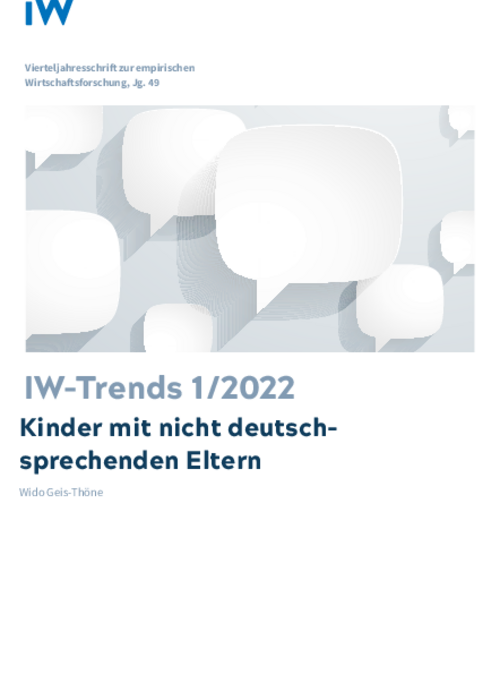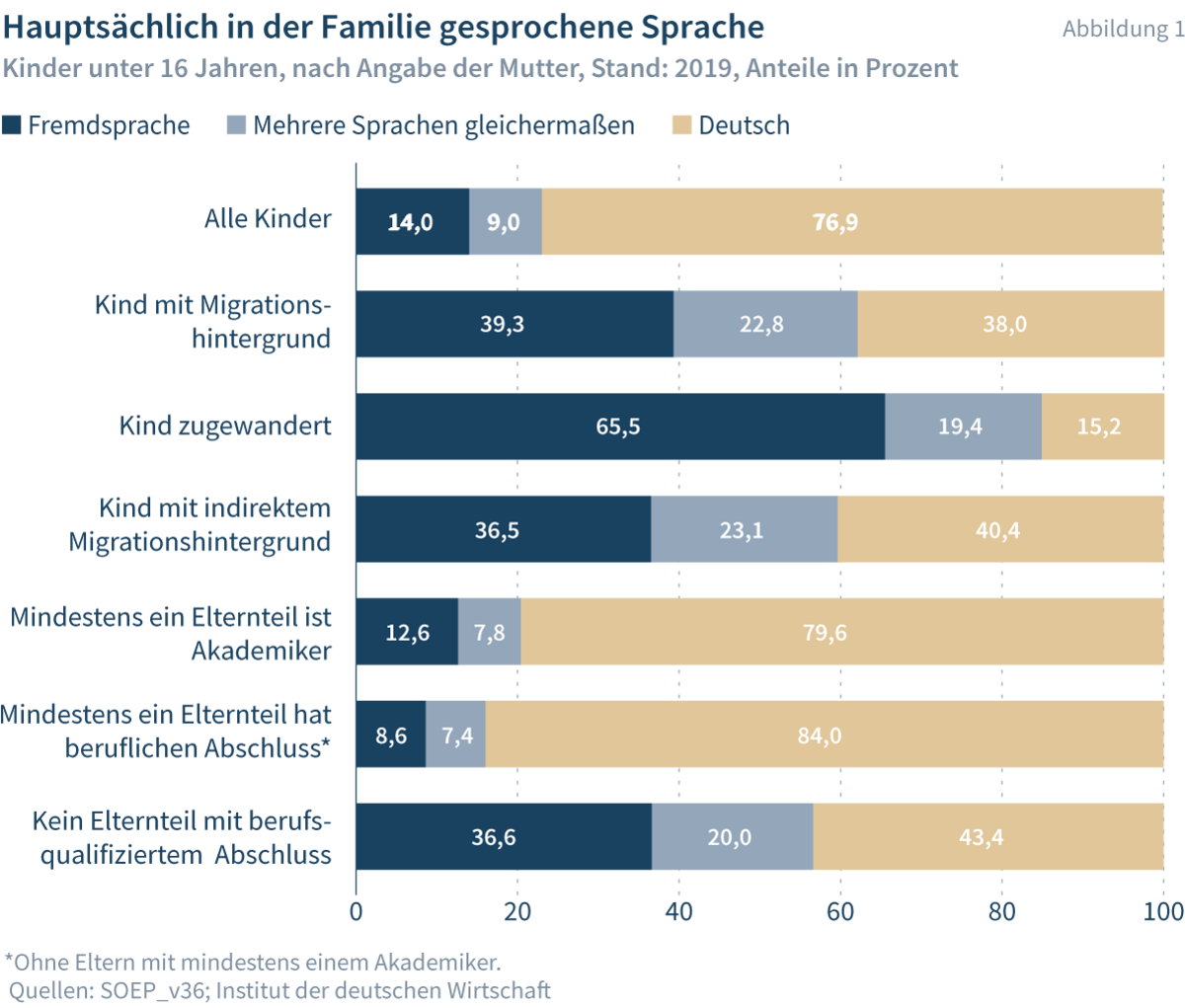Children whose parents lack a good command of German are at a clear disadvantage in the German education system. A dedicated analysis of the Socio-Economic Panel (SOEP) shows that, in 2019, for 10.5 per cent of children under 16 at least one parent, and for 5.2 per cent both parents, were not fluent in German.

Children with Non-German-Speaking Parents: an Analysis Based on the Socio-Economic-Panel (SOEP)

Children whose parents lack a good command of German are at a clear disadvantage in the German education system. A dedicated analysis of the Socio-Economic Panel (SOEP) shows that, in 2019, for 10.5 per cent of children under 16 at least one parent, and for 5.2 per cent both parents, were not fluent in German.
In families where German is not spoken at all at home, the proportions were 47.3 per cent and 27.0 per cent respectively. These figures make clear that the exclusive use of another household language does not imply that the parents are not proficient in German. A multivariate analysis suggests that if parents in foreign-language families have a good knowledge of German, the probability that their children will attend a high school between the ages of 13 and 15 is almost as high as for children without a migration background. An integration policy designed to compensate for language deficiencies should ideally tackle the disadvantages faced by the children of non-German-speaking parents where they originate. It is particularly important to intervene to help children who have not already been sufficiently introduced to the German language at the early childhood and pre-school stage. However, in 2019, only 65.3 per cent of children whose parents had poor language skills were attending a daycare centre at the age of three to four years compared to 84.3 per cent of children without a migration background. This makes measures geared to improving early language proficiency that much more difficult to implement.


Children with Non-German-Speaking Parents: an Analysis Based on the Socio-Economic-Panel (SOEP)

More on the topic

Record immigration not only due to flight from Ukraine
In 2022, more people immigrated to Germany than ever before in the history of the Federal Republic. Around 1.46 million more people moved here than left the country, which is more than a quarter more than the previous record of 1.14 million from 2015.
IW
Immigration from Latin America: Successes and potential for securing skilled workers
Against the background of the baby boomers leaving the labour market, Germany will be increasingly dependent on skilled workers from abroad in the coming years in order to secure growth and prosperity.
IW